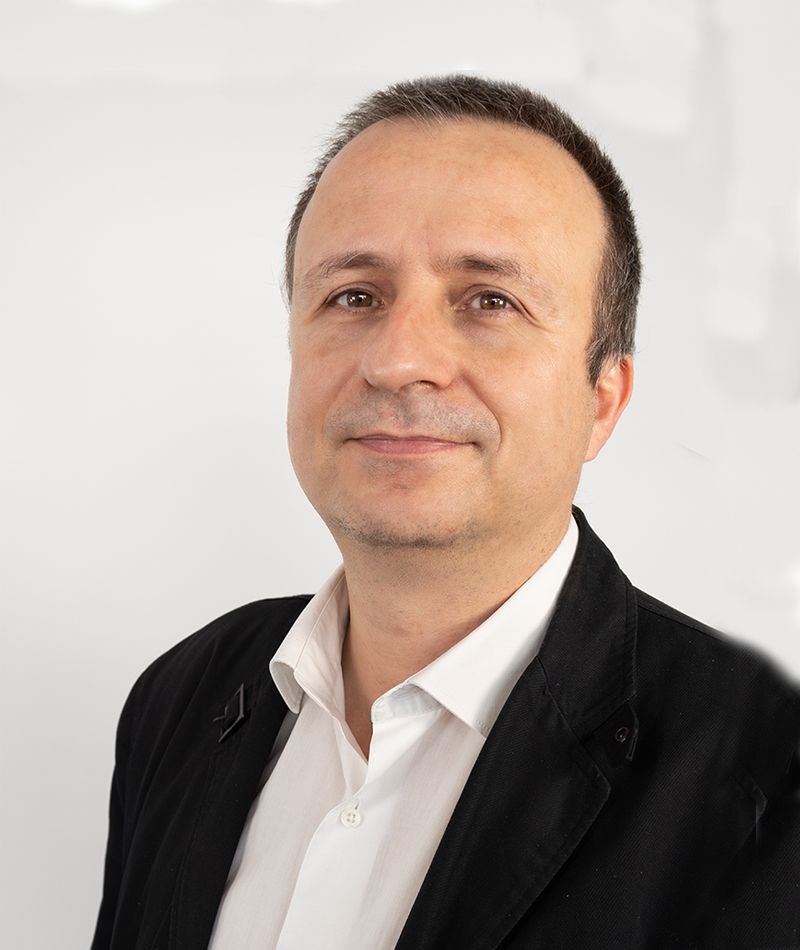
EUROPE AND UNITED STATES SET ROADMAP FOR MAKING 6G SUSTAINABLE
-
Carles Antón-Haro, member of the Board of Directors of the 6G Industry Association (6G-IA), will present at the 5G Forum 24 the cooperation strategy defined by the EU and the US for the development of future 6G networks.
-
“One of the main objectives is to make Artificial Intelligence energy efficient,” Antón-Haro says.
Future 6G networks and their sustainability will be a key topic to be discussed at the seventh edition of the 5G Forum, “Where 5G leaders meet”, which will be held from May 6 to 10 in a hybrid format: two face-to-face sessions will be held on Monday May 6 and Tuesday May 7 at the Nissan Cartuja Auditorium, and will be followed by three virtual sessions on May 8, 9 and 10.
“The goal of the future 6G is not only to improve performance, but to make it more sustainable,” says Carles Antón-Haro, member of the 6G-IA Board of Directors, chairman of the 6G-IA Test Working Group and Director of European Programs and Industrial Contracts at the Centre Tecnològic de Telecomunicacions de Catalunya (CTTC), who will present the cooperation strategy between the European Union and the United States for the development of future 6G networks.
EU and US join forces for 6G future
Carles Antón-Haro, member of the 6G-IA Board of Directors, will present at the 5G Forum the R&D roadmap for the future 6G to be a more sustainable network and service, a commitment that both the EU and the US have made and which they have set out in a document containing a set of “strategic reflections and recommendations”, which identifies opportunities for collaboration and which becomes the “starting point for the development of a 6G service” that will revolutionize the telecommunications sector.

Under the leadership of the 6G Industry Association (6G-IA), on the European side, and the members of the Alliance for Telecommunications Industry Solutions (ATIS), on the U.S. side, large companies such as Nokia, Ericsson, Thales, InterDigital and Qualcomm, as well as operators such as Vodafone, Orange and AT&T, have participated in the drafting of this document, endorsed in early 2024 and on which work will begin in the second half of this year, in addition to some SMEs such as Nextworks, and research centers such as the Centre Tecnògic de Telecomunicacions de Catalunya (CTTC), the Advanced Research Computing Center at Virginia Tech (VT-ARC), the Advanced Research Computing Center at Virginia Tech (VT-ARC), and research centers such as Nextworks.T, as well as some SMEs such as Nextworks, and research centers such as the Centre Tecnològic de Telecomunicacions de Catalunya (CTTC), the Advanced Research Computing Center of Virginia Tech (VT-ARC) and TNO.
The complexity of making AI sustainable
With a total of six areas of collaboration, the ultimate goal of this document is to “expand existing cooperation on 6G R&D between U.S. and EU funding agencies, align interests in global regulatory and standardization bodies, and cooperate on technology trials and pilots” that will facilitate the subsequent deployment of such networks.
Among these six areas, sustainability from the broadest point of view is one of the key aspects to be taken into account in the development of the future 6G, because, as Carles Antón says, “the goal is not only to improve performance, but to make it more sustainable” throughout the entire cycle. This objective is directly connected to Artificial Intelligence, which can lead to very high energy consumption when, for example, models have to be retrained.

“The 6G will be a network where everything will be natively facilitated by Artificial Intelligence, i.e., it will be an entire network based on AI,” says Carles Antón. Making AI energy efficient means not having to retrain the models every time the working conditions change (e.g. traffic, communications channel), but being able to readjust a previous one to the new conditions.
The 5G Forum has established itself as a reference forum in the technology sector, as it is a unique showcase with a multidisciplinary vocation to present every year the use cases and success stories of operators, companies, universities and institutions.
All the presentations of this and previous editions can be viewed through ‘The Observatory’, the digital platform of Medina Media Events, where all the interventions will be available 24/365 for on-demand consumption, like Netflix, but free of charge.
The seventh edition of the 5G Forum is organized by Medina Media Events and is supported by MASORANGE, Telefónica, Red Hat, Netmetrix, Huawei, ZTE, Mavenir, OFG, Vicomtech, Wavecontrol, Axión, the University of Málaga, Viavi Solutions, Nokia, Rohde & Schwarz, Gradiant, Hispasat, Gsertel, AI Funded, Opossum and Gamma Solutions, among others.